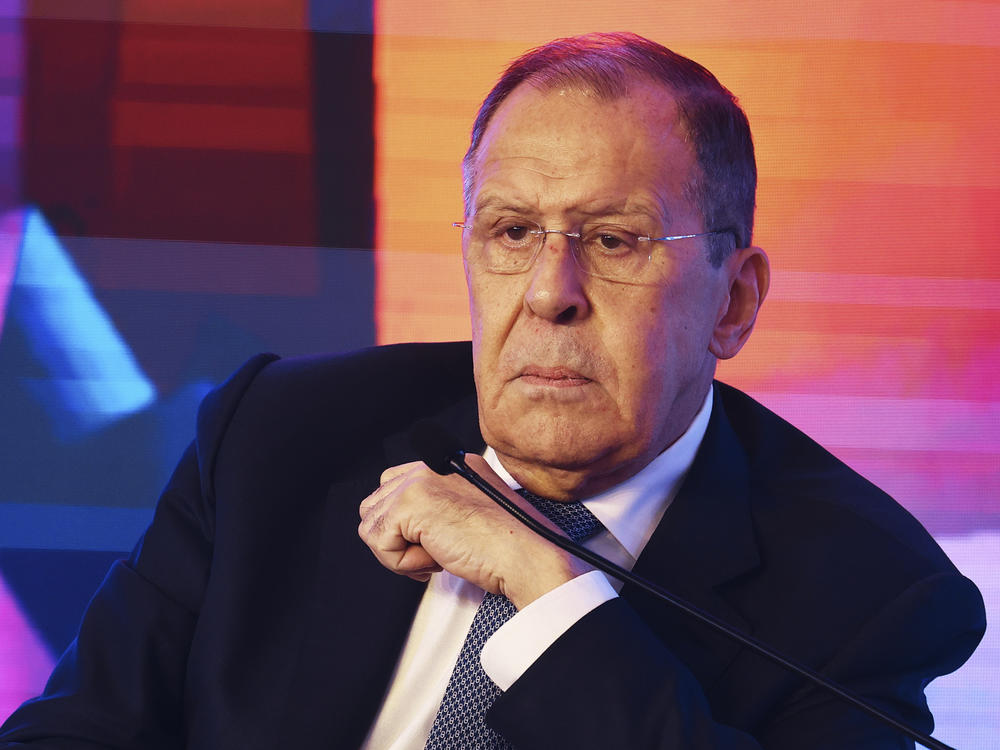Section Branding
Header Content
Russia's foreign minister gets laughed at over Ukraine remarks at a global conference
Primary Content
Ever since Russia's invasion in Ukraine, it has become rare for major international conferences to invite Russian officials. So, when an Indian think tank welcomed Russian Foreign Minister Sergey Lavrov to speak, it made for some awkward exchanges.
This week, India's Observer Research Foundation gathered academics, business executives and diplomats from the G-20, or Group of 20 economies, for a conference in Delhi known as the Raisina Dialogue.
On Friday, Lavrov took center stage of a Q&A session, where he voiced Moscow's views on the war in Ukraine.
In one exchange, Lavrov received loud applause for accusing the West of having a double standard, noting its heavy criticism of Russia's invasion of Ukraine despite Western powers having invaded Iraq and Afghanistan. In another, the reaction was less positive.
"The war, which we are trying to stop, which was launched against us using Ukrainian people," he said.
Before Lavrov could finish his sentence, the audience laughed and groaned — loud enough for the foreign minister to pause and stumble on his words.
"Of course it influenced the policy of Russia, including the energy policy. And the blunt way to describe what is the change, what changed, we would not anymore rely on any partners in the West," Lavrov added.
The mixed reaction from Lavrov's claim that Russia was not the aggressor in the conflict, but rather trying to defend it self, spoke to the complicated allegiances that have formed from the Ukraine war.
India, the world's biggest democracy, has maintained ties with Russia despite its invasion. Prime Minister Narendra Modi has not yet assigned any blame for the violence. Rather, he has been concerned over the spike in global food and fuel prices triggered by the war and doubled down on buying Russian oil at bargain prices.
The Delhi conference was also the first time that Lavrov and U.S. Secretary of State Antony Blinken met in person since Russia's invasion of Ukraine a year ago. The two spoke for roughly 10 minutes on Thursday.
NPR's Lauren Frayer contributed reporting.
Copyright 2023 NPR. To see more, visit https://www.npr.org.

